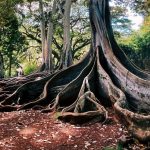“But I have trusted in your steadfast love; my heart shall rejoice in your salvation. I will sing to the Lord…” Psalm 13:5-6
I’ve been reading a book that was highly recommended to me by Jeff Long, a pastor and friend in North Carolina. And I highly recommend the book to you, too. Mark Vroegop writes about lament in Dark Clouds, Deep Mercy. He helps the reader press into biblical lament. I like what he says when he writes, “To cry is human, but to lament is Christian.” So helpful.
In brief, he identifies a biblical process that is repeated throughout The Psalms. First, a grieving or suffering person turns to God. Second, complaint is registered before God. Third, the mourner boldly asks and makes a request to God. Finally, trust is pronounced, proclaimed, and pressed into in order to round out biblical lament. All four parts—turn, complain, ask, and trust—are necessary to be true lament.
Here’s one observation. In the thick of grief, progress is seemingly non-existent or slow at best. Daily, weekly, and monthly, this repeated process of acknowledging the undeniable pain and turning to God followed by complaining to the Father, asking boldly for his provision, and turning in faith to trust him gives birth to progress. It’s slow and impossible to discern, but it’s there all the same.
“Waiting, even in darkness, is unconscious advance, because it is God you have to do with, and he is working in you.” Andrew Murray, Waiting on God
The advance is unconscious, unnoticeable. It’s not easily tracked or traced. You begin to realize the journey is more important than the destination. You learn there is not a fix for your grief. However, you begin to recognize there are multiple fixes along the journey. Those fixes are sent by God. So, as Andrew Murray would say we should be “…waiting, even in darkness…”
We wait on God. Turning. Complaining. Asking. Trusting. Doggedly so. He is the only one who can carry us through deep waters. In the realm of faith, his footprints are invisible. We make unconscious advance.
“Your way was through the sea, your path through the great waters; yet your footprints were unseen.” Psalm 77:19
We also wait with fellow journeyers. We are not alone. A fellow-journeyer is a visible Jesus to walk with me.
Again, there is not a fix for your grief. But, as you press through the turning, complaining, and asking, you open your eyes in trust and watch God bring people to you as you wait on him. People in response to the nudge of the Spirit step up one-by-one to play their part. Waiting with you. A pastor shares guidance. A family member recommends a book. Text messages reveal that people are praying. A lunch with a friend encourages. A listening ear. A chance meeting on a flight with a trusted mentor. Slow. Unconscious advance.
“We cannot change the situation, but we can allow the situation to change us.” Jerry Sittser, A Grace Disguised: How the Soul Grows Through Loss
To be very clear, again, in the thicket of grief the progress is almost imperceptible. But, by faith know that grief work is paying its dividends through lament. God is delivering grace, mercy, peace, love, hope, and comfort. Believe it and bank on it. Others are playing their part and providing encouragement the moment it’s needed. Receive and enjoy it.
“Both our journey’s Source and End, our broken lives are Yours to mend. ‘Cause if we pilgrims must be honest, we rarely seem to make much progress.” Justin Wainscott, Lost in Wonder, Love, and Praise
The advance is almost accomplished by stealth. Undercover. It’s unseen, unnoticeable, and unconscious. Unconscious advance. To quote Andrew Murray again, “Waiting, even in darkness, is unconscious advance…”
“…he has dealt bountifully with me.” Psalm 13:6



 Read the E-book Facing Loss: Lessons of Hope from My Unwanted Journey
Read the E-book Facing Loss: Lessons of Hope from My Unwanted Journey
Just what I’ve needed.
Me too.